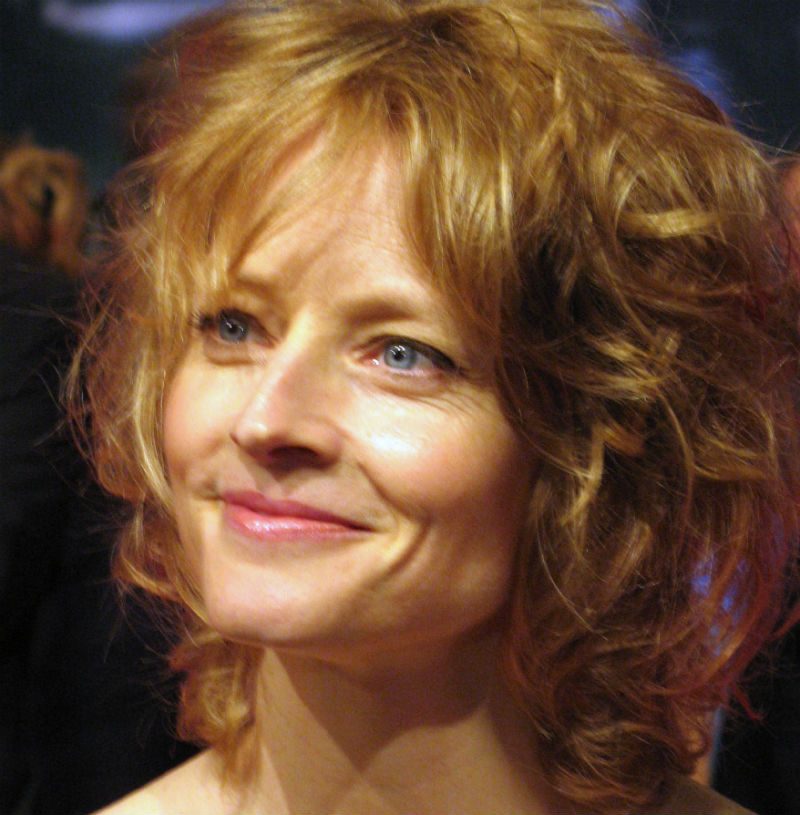
A fan’s tribute to the screen icon’s directorial outings.
I don’t know about you but for as long as I can remember, warmth has been where mom was. That’s it. Mom was my home, home was my mom. In Jodie Foster’s movies, moms are always struggling and sometimes powerless. Homes are dislocated, one way or another. It’s nothing to feel secure and warm about. And yet, through painful acknowledgements, mischievous laughs and funny situations, warmth magically appears.
Everything’s not going to be okay. (Spoiler alert)
Little Man Tate, Home For the Holidays and The Beaver are dramas. And I’m really not somebody who likes to categorize things but telling you that these films are the kind of Sunday-night movies that are going to boost your Monday morning would be cruel. Jodie Foster takes a giant magnifying glass and puts it right where it hurts. Nobody is what you want her to be. Children end up learning that their parents can’t always protect them and parents find themselves powerless in front of their children’s pain.
In Home for the Holidays, things are a bit tense between the three children. After the Thanksgiving turkey flies across the dining-room table onto their sister Joanne’s dress, Claudia and her little brother Tommy eat in the kitchen. They haven’t been punished, they are grownups. It feels a bit like that though. At that moment, it’s just the two of them against the rest of the world, they are their own drastically reduced family. This is when you realize that family is not only about blood or that you share a last name and DNA with people you…with people.
Child prodigy Fred Tate is only eight years old when he finds out that the life full of love and tenderness he lives with his mother Dede is not enough anymore. Dede knows it too but she tries to resist it. That amazing scene on the balcony is her last stand in a way. Fred, the child, is trying to read a serious book when Dede, the adult, comes to tease him while spitting cherry pits on the people down in the street. If you have ever experienced once that one of your parents wasn’t what you needed him to be, you know how Fred feels.
In The Beaver, Meredith drives her younger son Henry back home after school. Mother and son talk about how that school day went and it didn’t go so well. It appears that young Henry is a lonely kid whose relationships with others are complicated. That day, he was thrown in the dumpster by other kids. While Henry’s tone is even and expresses a kind of mature resignation towards the situation, Meredith reaches the high notes and betrays her panic about the fact that her kid has been bullied.
So, children learn too much too fast and parents fail to protect them. Are things going to get better or what?
Maybe not. But we can laugh about it.
Sometimes some characters are in charge of their circumstances, however. In Home For The Holidays, Tommy takes pictures of his sister Claudia in the shower, he moves the car just when she’s about to open the door and he does plenty of other really annoying and funny things. Aunt Gladys, a single, retired Latin teacher who farts a lot, loses her mind and gives lamps to anyone she likes, starts singing in one of the tensest situations. You have to smile at least. But those characters have their share of drama too. Tommy is at the heart of the conflict with his sister Joanne and Gladys will reveal a painful life-long secret. So what, drama again? Yes, because like fun, it is there all the time.
This is how, just like we sometimes laugh at a funeral because we need to, fun awkwardly finds its way in Jodie Foster’s movies. We don’t laugh because we refuse pain, we laugh because despite the pain life is still there, knocking at our door. And when we have had enough pain, the body of drama naturally starts to become cracked and rays of light appear.
Unlike his younger brother Henry, in The Beaver, Porter hates his father and can’t stand to see him talking through a beaver puppet. The first time I saw the movie, Porter was the only character I could relate to. I wasn’t a mother, I had never been a middle-aged depressed father, and I had forgotten what it was like to be seven. But I remembered being seventeen and angry like Porter was. So I saw the movie through his eyes. I was judging Meredith for letting this man be there, I was judging Henry for being too young and too stupid to understand, I was judging Walter for being unable to take care of his family. Because I was judgmental, I was unable to feel. I couldn’t feel how much those characters were lost and sad. I refused to acknowledge that maybe, I was a bit sad too. For the same reason, I was unable to feel the fun. And one day, I was watching a scene where Walter makes Henry laugh by making the beaver poop. I’ve never been a huge fan of poop and pee jokes either, as an adult or as a child; I had always found them too easy. But this time, I genuinely laughed. I giggled. I was seven for the first time on that matter because I could feel Henry’s emotion. And it felt really warm.
What is warmth? It’s about finding what we need to grow up and become the most well-adjusted person possible. All living beings need warmth to grow up, plants need the sun, puppies need their mother or a ton of blankets to be kept warm. Their survival depends on it.
For Henry, it’s that moment when he’s with his mom and dad laughing at the beaver’s jokes. Claudia and Tommy find it hugging each other on their own in the kitchen. The thing is, we know that that kind of warmth, the one we find outside ourselves is a frail bubble that’s going to break one day or another. I love The Avengers, I really do. And sometimes, when I need warmth, I watch a franchised film and it works, for two hours, for the night. But in the long run, I always come back to those three gems, even if sometimes it’s still painful. Am I a masochist? Not at all. I think the answer is in the process of always coming back to them, sometimes I feel, almost against my will. My soul is drawn to them because it knows that it will find what it needs: understanding. Not an intellectual one but a visceral one. The kind of understanding that is so obvious that when the process has been completed I can barely remember that I didn’t know once.
The first thing that struck me about Jodie Foster’s movies were the places where they were set, and especially where people live or have to spend time. They felt like home to me and I couldn’t figure out why. As if they and I were made of the same thing. They fit my body like tailored clothes. I almost felt as if those houses, those rooms existed inside my body. And I figured it out; this is because it’s where the acknowledgement takes place. By living all those emotions through the characters, I viscerally understand what I have to understand. The warmth that I found outside of me comes inside. Most of the time I don’t need a blanket around my shoulders anymore. But sometimes I still do. Like today, the sun of this early May in Paris is still a bit weak. But it’s fine because I know it won’t last.
Adele, the almighty mother of Home For the Holidays, like every mother on earth, has dreamt once to have the perfect family. But this family only exists in her mind. The real one is tearing apart at the Thanksgiving table. So when it’s too much, even for her, she goes to hide in the kitchen closet. Only the smallest room of the house fits her body enough to keep her warm. But this can only be brief. We all have to get back to the world at some point. Sometimes we need a hand to do that. So, after Claudia has joined her mum to comfort her, this is Tommy who bangs loudly at the door, Tommy the gay son who invites his mother to come out of the closet. Why him? Because he knows how to do it, he did it. Tommy says to his mom: “You’re a pain in my ass but I like you a lot.” And maybe this contradiction sums everything up. Yes, sometimes being alive is painful but being alive is all we have so, in a way, we have no other choice but like it.
I think this is what warmth in Jodie Foster’s movies is all about. If we accept what we have to feel, good or bad, to learn our lessons, life is not so bad after all. We’ll always find a family to love us as we are. Even if it’s just one person, even if there’s nobody yet, we will find them. Because warmth is where we are because we are warmth.


